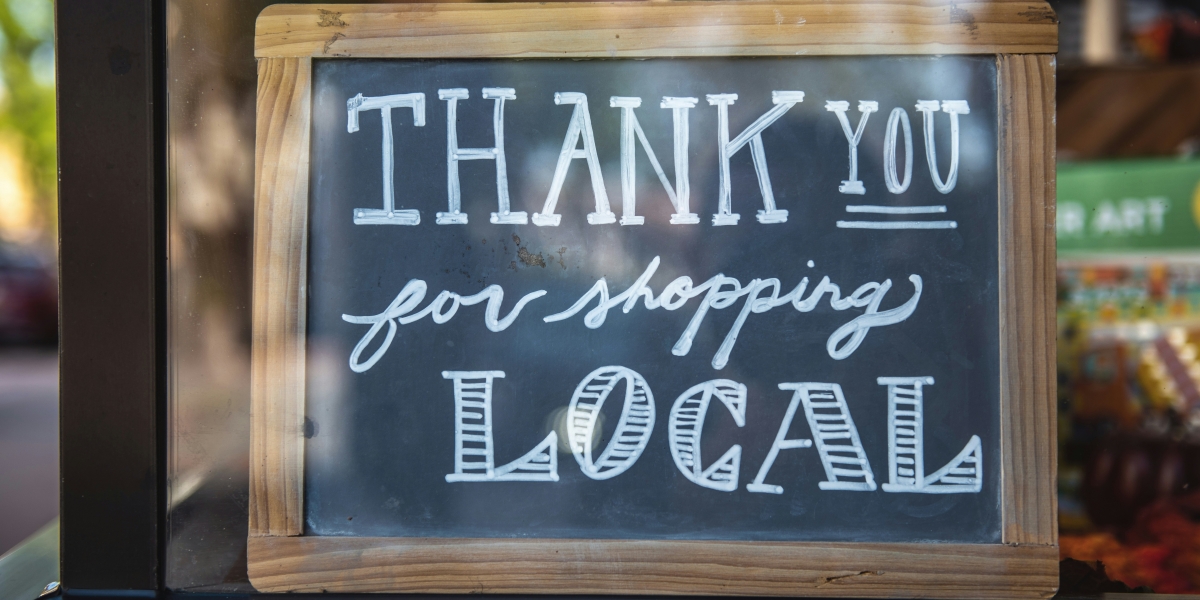By: Joshua Finley
Lessons I Learned While Building My Own Small Business
I want to start with a confession: when I launched my own content business, I thought “local SEO” sounded like a job for the other guys. The tech wizards. The keyword nerds. I imagined someone huddled over a laptop, typing things like “best pizza joint in Fargo” into a spreadsheet, praying to Google for mercy.
But as I soon learned, real trust matters online as much as it does in person. And when you’re running a small business, building trust is your business.
Because your neighbors are watching, Google is watching. And whether you’re slinging coffee, fixing cars, or writing killer copy, if no one trusts you enough to click, call, or stop by… well, you’re out of luck.
So, I dove in. I built trust and authority the long way, the slow way, the way small business owners have to do everything. And now I’m here to share my hard-earned lessons.
If you want to strengthen your online presence (without losing your mind), here’s what I learned about making Local SEO work for you without sounding like a robot.
Start with Reviews: Real People, Real Stories
You know what’s funny? I used to avoid asking for reviews because it felt… weird. Like handing someone a compliment card at dinner: “Here, say something nice about me.”
But then I realized something: people want to help you, especially when you’ve helped them. You just have to ask.
- Ask in the Moment: If you’ve done a good job for a customer, and you can tell they’re happy, that’s the moment. Don’t let it pass. A simple, “Hey, would you mind leaving us a review on Google? It helps” works wonders.
I’ve even heard coffee shop owners say, “If you love your latte, tell Google. If you didn’t, tell me.” I love that. It’s playful, and it shows you care about their feedback either way. - Respond to Everyone: And I mean everyone. Good reviews deserve a heartfelt “thank you.” Bad reviews? Handle those like you’d handle a challenging conversation with a friend. Be polite, professional, and genuine. People aren’t looking for perfection; they’re looking for someone who cares.
Example? A customer once left me a snarky comment: “Too many metaphors in this blog post.” I responded: “Fair enough, Mark. Next time, I’ll metaphorically rein it in. Thanks for reading!” He laughed. I got a ‘thumbs up.’ Crisis averted. - Showcase Your Stars: When someone says something extraordinary about you, let it shine. Share those reviews on your website, on social media, and wherever you think your next customer is hanging out.
Here’s the truth: people trust others more than you. That’s not cynicism. That’s human nature. Reviews are like little windows into your business, let people peek through and see something real.
Consistency Builds Authority: NAP Isn’t Just for Kids
I learned this the hard way.
In the SEO world, NAP stands for Name, Address, and Phone number. It seems simple: make sure those three details are the same everywhere: on Google, Yelp, Yellow Pages, your website, and even that old Facebook page you forgot about.
I didn’t do this at first. I was sloppy. My Google Business Profile had my new office address, but Yelp still showed my garage office, where the only foot traffic was my dog.
Google didn’t know what to believe. And if Google can’t trust you, neither can your customers.
Here’s what I did to fix it:
- I listed every directory where my business appeared (Google, Yelp, Facebook, etc.).
- I updated my NAP info everywhere, down to the last comma.
- I used a tool called Moz Local to clean up the rest.
It wasn’t glamorous, but it worked. My website started climbing search results, and I stopped confusing people.
Think of it this way: your NAP is like your handshake. If it’s firm, confident, and consistent, people trust you. If it’s floppy and weird, people hesitate. Don’t make people hesitate.
Keywords: Speak Their Language, Not Your Own
When I first heard the term “location-specific keywords,” I imagined stuffing phrases like “best writer near me” into every corner of my website. I was wrong.
Here’s what I learned instead:
- Listen First: What are your customers searching for? Use tools like Google Keyword Planner or Moz to find out. You might discover they’re typing things you’d never expect, like “honest mechanic in San Diego” or “stress-free haircut for toddlers.”
- Write Like You Talk: Don’t overcomplicate it. If you run a bakery in Austin, tell people, “We’re a cozy bakery in Austin serving homemade sourdough and pastries.” Be specific, but natural.
- Don’t Overdo It: Stuffing keywords everywhere is like wearing a tuxedo to a barbecue; it’s overkill. Drop your location-specific keywords where they make sense: your headlines, meta tags, and homepage. And then get back to telling your story.
Google Business Profile: Your Free Front Door
If your website is your digital headquarters, your Google Business Profile is your front door. It’s what people see when they search for you, your hours, photos, and reviews.
You wouldn’t leave your actual front door messy, right? Here’s how to keep your digital one clean and inviting:
- Fill out every detail: business hours, services, contact info, don’t skip anything.
- Post photos: Real ones. Of your team, your work, your space. People love to see who they’re doing business with.
- Update often: Share promotions, events, and small updates like “New menu item this week!” Google notices. Customers notice.
One day, I updated my profile with a new photo and a short post about a local workshop I was teaching. Within 24 hours, someone messaged me: “Hey, I saw your post! Do you have spots left?”
Google is always watching. Use that to your advantage.
Content: Be a Voice, Not an Echo
Here’s my favorite trick: write about your community.
If you’re a local business, your customers don’t just care about what you sell; they care about where they live. So write for them. Share stories about the town festival, tips for navigating local life, or trends specific to your neighborhood.
For me, that meant blogging about copywriting workshops I hosted at a nearby coworking space. For a local coffee shop, it might mean a blog called “5 Best Study Spots in [Your City].”
This kind of content positions you as more than a business. It makes you part of the community.
Partnerships: Local Links That Matter
I’ll be quick: the best links are absolute links. From real businesses. In your area.
Partner with local charities, schools, or businesses. Sponsor events. Write guest blog posts for your neighbor’s site. These local links signal to Google that you’re legit and remind your community that you’re here for the long haul.
Final Lesson: It’s Not About SEO. It’s About People.
The funny thing about Local SEO is that it’s not about algorithms or rankings. It’s about trust.
It’s about showing up, online and in real life, so that people know you, like you, and believe you’re worth their time.
But if you’re feeling overwhelmed or don’t know where to start with optimizing for local search, you’re not alone. Sometimes, it pays to bring in an expert who lives and breathes this stuff. For example, if your business is based in Florida, you might want to look into professionals specializing in Miami SEO services.
It’s about being human, consistent, and a little bit charming. And if you do it right, your customers won’t just find you; they’ll stick with you.
Because they trust you.
And trust, my friend, is the ideal SEO there is.
So take it from me, a guy who once thought SEO was some technical mumbo jumbo. It’s not magic, but it does work, especially if you’re willing to put in the human effort.
Now, update your Google profile, call your happiest customers, and show your community why they can trust you.
And if you get stuck? Remember what I told you: NAP, reviews, content, and simple stuff are done well.
Google will notice. Your neighbors will notice. And you’ll be on your way.
Trust me.
Disclaimer: The views expressed in this article are those of the author and do not constitute professional SEO or marketing advice. While the strategies shared are based on personal experiences, individual results may vary. It is recommended to seek professional consultation for tailored SEO services specific to your business needs.
Published by: Cammy V.









